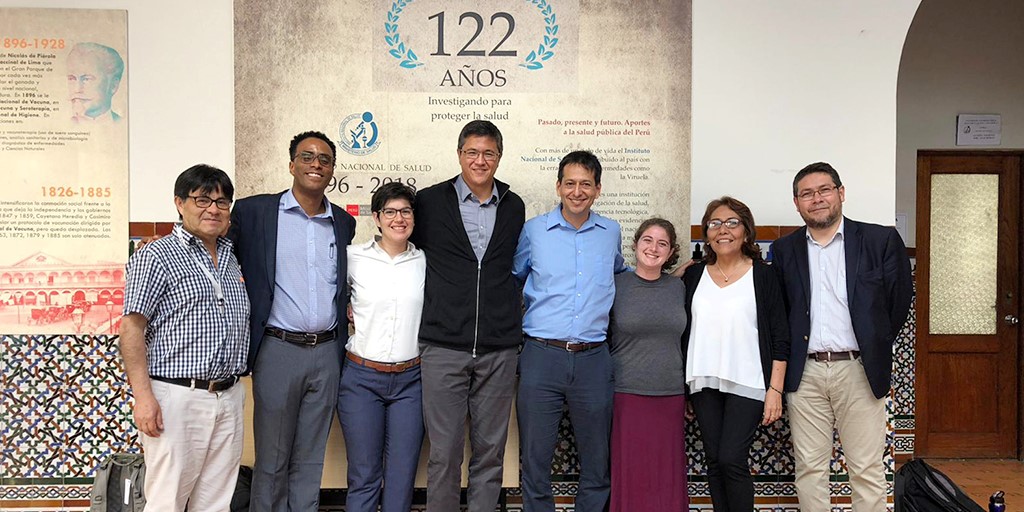Coming Together to Find Policy Solutions for Human and Ecosystem Health in Peru
Chris P. Lara received his Master of International Development Policy (MIDP) degree from Duke’s Sanford School of Public Policy on May 11. As an MIDP Fellow and Rotary Peace Fellow, he contributed to Bass Connections research on the impacts of gold mining in the Peruvian Amazon. He’ll continue working with Professor Bill Pan in early summer before returning to his position at the United Nations in New York.

Before coming to Duke, I was interested in exploring the potential of cross-sectoral policy development in enhancing the efficiency, efficacy and impact of interventions in the fields of humanitarian action, development and public health. This stemmed from my experiences throughout more than eight years with the United Nations working on coordination of emergencies, from natural disasters and public health emergencies to armed conflicts, in different settings around the world.
With this Bass Connections team, Environmental Epidemiology in Latin America, my objective is to define the policy context of the human and environmental epidemiology of the use of mercury in artisanal gold mining in the Peruvian Amazon, while recommending cross-sectoral policy solutions. One approach has been the design of a partnership strategy to strengthen outreach, dissemination and impact of Duke’s scientific missions to benefit the most affected communities.

The Minamata Convention meeting in Geneva was an opportunity to support the representatives of the Peruvian government and build up a working relationship. It was also the best platform to present Duke research to key stakeholders while allowing me to foster collaborations at different levels (and across silos and sectors).
During the scientific mission to Peru in December, I had the opportunity to present Duke’s work to the recently elected Governor of Madre de Dios, with whom we are defining future areas of collaboration. I also spent a significant part of my time engaging native communities of the Peruvian Amazon, in particular the community of Tres Islas. In 2017, the Inter-American Commission of Human Rights (IACHR) granted precautionary measures to Tres Islas due to mercury in the inhabitants’ bodies and in their water and soil stemming from mining and indiscriminate deforestation.
The fundamental question I posed to the different actors I engaged with was, “How do you think our work at Duke could create more value?” Based on that approach, we gathered information that will inform the agenda of future research groups. Looking ahead, we must continue a process of communication and feedback with Peruvian stakeholders, including the Ministry of Environment and Ministry of Health, and global organizations such as World Wildlife Fund (WWF) and the United Nations Environment Programme.
The impacts of gold mining and mercury use require intersectoral action (health, environment, agriculture, mines, industry, etc.) to protect both human and ecosystem health. Therefore, the scope of our collaboration with WWF includes coordination with the Pan-American Health Organization, the United Nations Environment Programme and the World Bank, among others. In December, Duke coordinated and successfully carried out the first of a series of global teleconferences to generate ideas for interventions in support of the government.
I am convinced that the role of academic research institutions is critical to realize the Sustainable Development Goals. Once I return to my job with the United Nations, I expect to continue working on using strategic policy and planning tools that help our global operations to drive responses to challenging situations in volatile, complex and ambiguous conditions. Working with scientists from academic and research institutions will be critical, and I will be ready for the required coordination, knowledge cross-fertilization and translation among institutions, disciplines and actors.
Read a related post by Chris Lara on the Duke University Center for International Development website.
Learn More
- Explore this project team, Environmental Epidemiology in Latin America: Impacts of Artisanal Gold Mining in the Peruvian Amazon.
- Read what team leader Emily Bernhardt has to say about her involvement with this research.
- Browse stories from students about their Bass Connections experience.